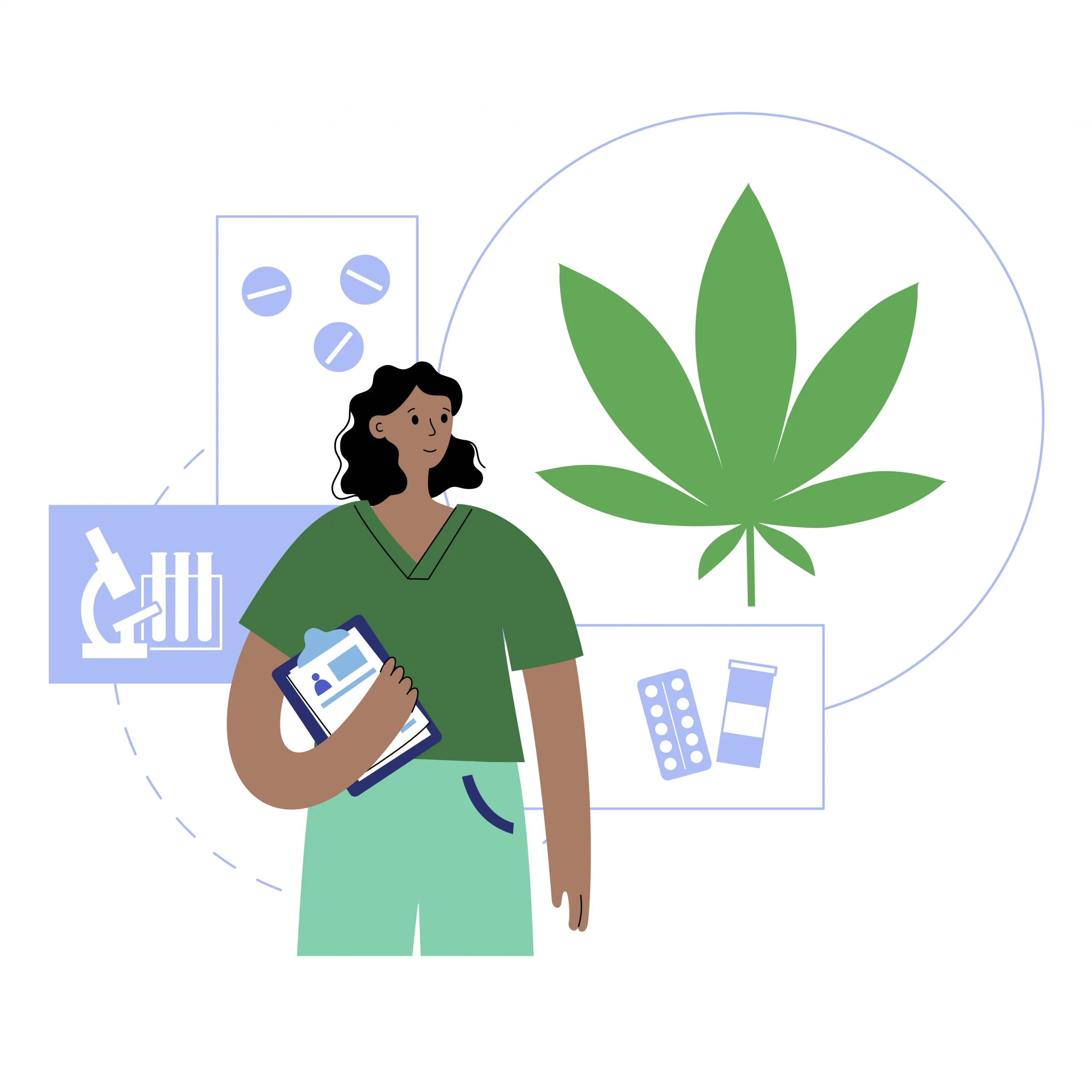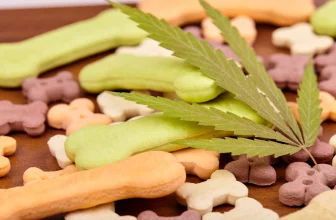
CBD holds tremendous promise as a remedy for many different ailments. From insomnia to epilepsy, depression to anxiety, inflammation to sexual performance, and beyond, the list of problems CBD could potentially help alleviate is only growing.
Because CBD is not a regulated drug and doesn’t often get prescribed by doctors, it’s usually up to you to determine the right dosage for your body and your needs. That means it’s time for some DIY science.
CBD: The Facts
CBD is an acronym for cannabidiol. Cannabidiol is a cannabinoid (yes, those are two different words), which is the name for the active chemical compounds inside the cannabis plant.
Like a real-life Smurf Village, nearly all of these characters start with “canna-” and end with various sing-song syllables. They’re also the agents that are responsible for the numerous desirable effects CBD has on our bodies and minds.
There’s one thing to remember about CBD above all others: It does not get you high. Let’s repeat that: It. Does. Not. Get. You. High.
Cool? Cool.
What CBD does do, though, is make you feel awesome in other ways. While scientific research still has a long way to go in discovering all of its effects and their underlying mechanisms, there is a growing body of evidence supporting the use of CBD for many different indications.
CBD: The Research
Several studies have produced promising results for a number of conditions:
Anxiety Disorders
According to a 2015 review, CBD could prove effective in treating:
- Panic disorder (PD)
- Post-traumatic stress disorder (PTSD)
- Obsessive-compulsive disorder (OCD)
- Generalized anxiety disorder (GAD)
- Social anxiety disorder (SAD)
A 2020 study of nearly 400 adults showed an association between CBD use and improved quality of life among those with depression and anxiety.
Migraines
With nearly 1 billion people worldwide suffering from migraines, it’s wonderful to hear that CBD might provide some relief. Specifically, CBD has shown an ability to help with multiple pain-related conditions, and researchers suspect migraines might be among them.
Inflammation
Inflammation affects our bodies in countless ways, nearly all of them negative. In 2017, researchers showed that CBD exhibits significant anti-inflammatory properties. This means it could be used as a treatment for cardiovascular diseases, Alzheimer’s, multiple sclerosis, inflammatory bowel diseases, and more.
How to Dose CBD
In this section, we’ll look at how to find the optimal dose of CBD for your body and needs.
Things to Note
It’s important to note that your body’s reaction to CBD will depend on several variables:
- The potency of your CBD product
- The bioavailability of your CBD product
- Your sensitivity to medicine and supplements
- Your previous CBD use
- Your weight
- Your metabolism
- The severity of your condition(s)
- Your other medication use
Bioavailability refers to how much of the CBD in a product actually makes it into your bloodstream. This varies by the type of product:
- Topical CBD can deliver less than 1% of its CBD content
- CBD edibles such as gummies can deliver 5-15%
- CBD oil drops can deliver 30%
- CBD vapes can deliver upwards of 50%
Step 1: Choose Your Product
Just because different CBD products have different bioavailabilities doesn’t necessarily make one better than the other. For instance, if you’re treating dry skin, a vape will never match the performance of CBD skin cream, even those its bioavailability is 50 times higher.
For conditions beyond skincare, however, it’s always good to try to maximize the bioavailability of your CBD. If the idea of vaping doesn’t appeal to you, consider CBD oil. You can simply drop the liquid under your tongue, hold it there for a minute, and swallow.
Step 2: Consult Your Doctor
It’s important to ask your doctor whether CBD will interfere with other medications you’re using or whether another medication would be better to treat your particular condition.
Step 3: Start Small and Work Your Way Up
As illustrated in our dosing calculator, it’s best to start with a small dose and work your way up. You’re looking for the point when you notice effects but don’t experience side effects.
Try starting with a dose of 30 to 40 mg of CBD. Increase by 5 mg per week until you notice a difference, then stick at that level. If you go too high, you risk building a tolerance and experiencing unwanted side effects.






